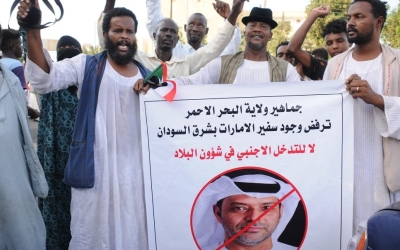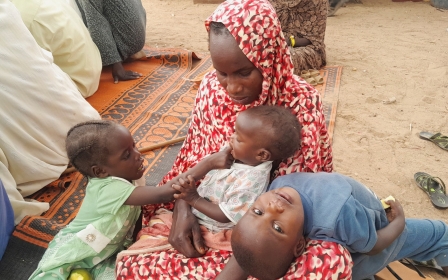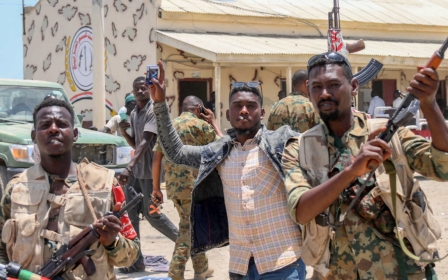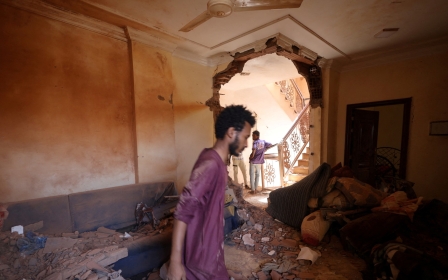Sudan: Why are ceasefires constantly being broken?
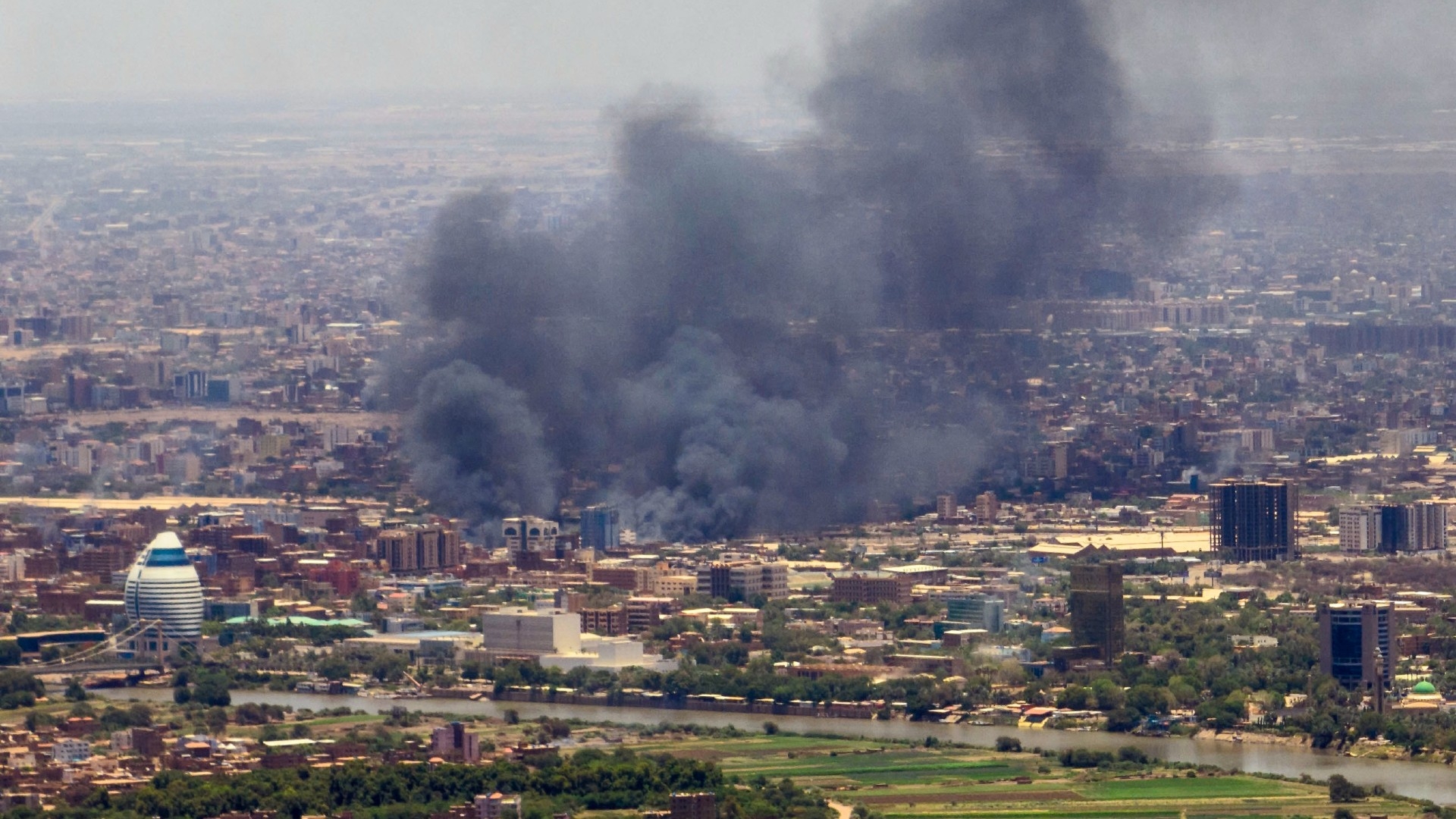
When it comes to ceasefires in Sudan, it’s like Groundhog Day.
Both the Sudanese army and the paramilitary Rapid Support Forces (RSF) commit to a temporary truce, accuse each other of violating it, resume hostilities, and then agree to an extension or fresh agreement. Repeat.
More than 500 people have been killed and over 4,000 injured since fighting broke out three weeks ago, sparked by plans to integrate the RSF into the armed forces. Many of those deaths have occurred during theoretical ceasefires.
The latest of those truces came into effect on Thursday - this time a seven-day ceasefire brokered by South Sudan. It’s already reportedly been broken, after air strikes were witnessed in Khartoum.
RSF leader Mohamed Hamdan Dagalo, better known as Hemeti, and army chief Abdel Fattah al-Burhan, have consistently blamed each other for breaching the peace. Barely minutes go by after a truce comes into effect before gunshots and air strikes are heard.
New MEE newsletter: Jerusalem Dispatch
Sign up to get the latest insights and analysis on Israel-Palestine, alongside Turkey Unpacked and other MEE newsletters
So why do the rival strongmen keep agreeing to ceasefires, knowing that they are not worth the paper they're written on?
Cameron Hudson, a former CIA analyst, and senior associate at the CSIS Africa Program, said much of it is public relations.
“Both sides share an interest in creating an impression among the international community that they are cooperating with calls for ceasefires and that they are acting responsibly,” he told Middle East Eye.
'Ripeness theory'
Several of the temporary agreements were brokered in attempts to evacuate civilians - both foreign and Sudanese nationals - from war-torn areas.
Hudson notes that many of the RSF’s statements, such as those regarding truce agreements, are issued in English only.
“[This] is clearly a signal to me that these decisions that they are promoting are being done to appease the international community.”
He adds that the warring parties are creating a “narrative” that they are cooperative, but also that their “cause is just”: Hemeti in promoting democracy and defeating military rule, and Burhan in defeating a mercenary army taking over the country.
Just 18 months ago, Hemeti lent his support to Burhan as the latter carried out a military coup against the then transitional military-civilian government, which followed the ousting in 2019 of longtime ruler Omar al-Bashir.
For Andreas Krieg, assistant professor at the Defence Studies Department of King's College London, the failure in recent ceasefires is calculated.
'The position that they end up with on the battlefield will be reflected at the negotiating table'
- Cameron Hudson, former CIA analyst
“Both sides know that they don't really want the ceasefire,” he told MEE. “They still think that they can win ground and seize objectives through fighting rather than negotiation.”
Krieg refers to “ripeness theory”, an international relations hypothesis which posits that only once both sides of a conflict realise that they cannot win by further escalation will a political resolution be sought.
“The time isn't ripe for both sides to actually sit down at the negotiation table,” Krieg said.
“Both sides are extremely well positioned. They're well armed, they're well staffed. They're well paid to continue fighting.”
Dr Jihad Mashamoun, a Sudanese researcher and analyst on the Horn of Africa, said the army and RSF are focused on their immediate military objectives.
“The RSF is calling in reinforcements from Darfur, and the air force is attacking them,” he told Middle East Eye.
“The military is focused on cutting the supply lines of RSF reinforcements.”
Mashamoun adds that the RSF has no central command to control its forces, further complicating attempts to implement temporary truces.
The UN special representative in Sudan, Volker Perthes, said over the weekend that both sides had nominated representatives for potential talks to take place either in Saudi Arabia or South Sudan.
“The position that they end up with on the battlefield will be reflected at the negotiating table,” Hudson said.
“I take this high tempo of fighting to suggest that they may ultimately be preparing for some kind of political conversation.”
External actors
Often parties in a conflict are compelled into ceasing hostilities by international allies, but that's not happening in Sudan so far.
Burhan is favoured by Egypt, while Hemeti has wealthy backers in the UAE and Saudi Arabia.
“The external patrons have a vested interest in making sure that their surrogates are winning,” said Krieg, citing Cairo and Abu Dhabi in particular.
“If you look at Egypt… they're quite determined to continue to support Burhan. There's no circumstance where Egypt would accept the RSF taking over and winning.”
During the first few days of fighting, Egyptian soldiers were briefly taken prisoner by the RSF at the Merowe airbase in northern Sudan.
Cairo claimed they were participating in a joint training exercise. However, reports suggest they were in fact there to militarily aid Burhan.
“Egypt sees Hemeti and the RSF as no more than mercenaries. They respect the Sudanese army as a reflection of the Egyptian army,” said Mashamoun.
Meanwhile, the UAE, which backs Hemeti, imports $16bn of gold from Sudan each year, and has signed a $6bn initial pact to build and operate the Abu Amama port and economic zone in Port Sudan.
Mashamoun said that Egypt and the UAE have leverage in Sudan, but doubts whether they have the willingness to bring about a ceasefire.
Saudi Arabia is seen by some as a more balanced negotiator in Sudan, less partisan than some of its regional allies.
“But… the Saudis have very little leverage and they haven't really used the leverage they have to bring both sides to the negotiation table," said Krieg.
The Saudi coastal city of Jeddah - separated from Port Sudan by 292km along the Red Sea - has become a key entry point for evacuated civilians, both Sudanese and foreign nationals, fleeing the fighting.
Meanwhile, US President Joe Biden's administration has also failed to bring about peace either, temporary or long term. Mashamoun puts that down to a lack of planning and foresight.
"Biden doesn't have a coherent plan for Sudan," he said. "[The US] doesn't have any vision to support Sudan's transition to democracy."
Middle East Eye delivers independent and unrivalled coverage and analysis of the Middle East, North Africa and beyond. To learn more about republishing this content and the associated fees, please fill out this form. More about MEE can be found here.


